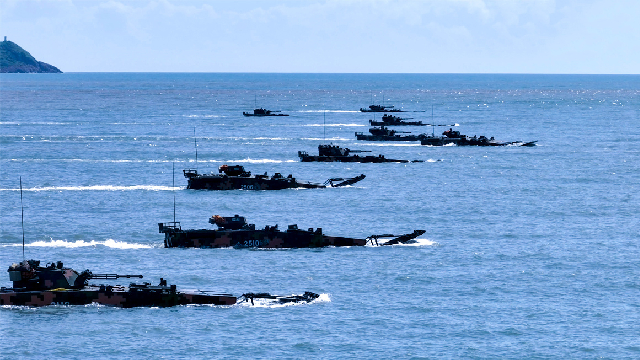By Xiang Haoyu
An article by Japan's newly elected Prime Minister Shigeru Ishiba published by Hudson Institute, an American conservative think tank, has sparked controversy. The article, titled "The Future of Japan's Foreign Policy", asserted the establishment of an "Asian version of NATO" on the pretext that "the absence of a collective self-defense system like NATO in Asia means that wars are likely to break out because there is no obligation for mutual defense. Under these circumstances, the creation of an Asian version of NATO is essential to deter China by its Western allies."
The idea of forming an "Asian version of NATO" is laden with Cold War-style bloc confrontation and zero-sum mentality. It is completely divorced from the reality in the Asian region known for its complexity and diversity and goes counter to Asian countries' wishes to seek common ground, shelve differences, and pursue inclusive cooperation.
Therefore, it came as no surprise that the article soon triggered universal opposition and questioning from Japan itself, other Asian countries, and even the US. It is overwhelmingly believed that what Japan's new prime minister suggested has no viability because it is against Japan's domestic law and regional realities, nor is it in line with America's policy objectives.
After WWII, the US has maintained its dominance in the Asian security order leveraged on the bilateral "hub-spoke" system encompassing its regional allies such as Japan, ROK, Australia, and the Philippines. International strategists believe there are two reasons why the US didn't forge a collective security architecture in Asia. First, bilateral alliances enable it to better manage and control its allies, preventing them from unilateral actions that may embroil the US into unnecessary conflicts. Second, Asia doesn't have the tradition and collective recognition of multilateral defense cooperation, and America's Asian Pacific allies are geographically far from each other with different security concerns and demands, making shared strategic objectives almost impossible. Therefore, an "Asian version of NATO" has no viability in the region.
Between the aggravated China-US rivalry and the prolonged Ukraine crisis, there has been renewed attention to an "Asian version of NATO" in the international community over recent years. Washington has sped up its deployments around China in the name of its "Indo-Pacific" strategy, and its minilateral cooperation has kept deepening through the US-Japan-India-Australia quadrilateral mechanism (the Quad), the US-UK-Australia (AUKUS), and the US-Japan-Philippines and US-Japan-ROK alliances, giving rise to a composite and multi-tiered alliance system.
In the meantime, leaders of Japan, ROK, Australia and New Zealand have been invited to NATO summits for three years in a row, indicating their intensified military and security cooperation. The NATO 2022 Strategic Concept labeled China as a "systemic challenge", with which the organization began to extend its antenna to Asia Pacific. All these moves are signs that NATO is trying to enhance its presence in the Asia Pacific.
Yet the US is actually very cautious about establishing the so-called "Asian version of NATO". Senior officials in the Biden administration have said repeatedly on various occasions that they had no such intention. After the US-Japan-ROK meeting at Camp David last year, US National Security Advisor Jake Sullivan expressly denied that the trilateral security relations constituted a new NATO in the Pacific, and US Defense Secretary Austin said they didn't want to form another NATO in the Indo-Pacific even though they valued the relations with their allies and partners.
At the same time, countries in the Asian Pacific region are passive or opposed to the idea. Former Singaporean Prime Minister Lee Hsien Loong used to express his opposition publicly, and a Singaporean scholar, when receiving an interview from a Japanese media outlet about Shigeru Ishiba's article, asserted that no country wants an Asian collective security organization except Japan.
While the "Asian version of NATO" won't become Japan's policy any time soon, we must be alert to the deep-rooted Cold War mindset of some Japanese political elites exposed by this idea – they are not small in number. Their bigoted obsession with zero-sum confrontation has presented itself in the foreign policies and actions of several Japanese administrations from Shinzo Abe to Fumio Kishida. If the new Prime Minister continues to adopt a "beggar-thy-neighbor" foreign strategy and serves as a proponent of ideological competition and geopolitical confrontation, he will further split the region and exacerbate geopolitical tension. That will do no good to Asia's stability and development, neither will it bring real security to Japan in the end.
(The author is a special research fellow at the Department for Asia-Pacific Studies, China Institute of International Studies)
Editor's note: Originally published on huanqiu.com, this article is translated from Chinese into English and edited by the China Military Online. The information and opinions in this article do not necessarily reflect the views of eng.chinamil.com.cn.









